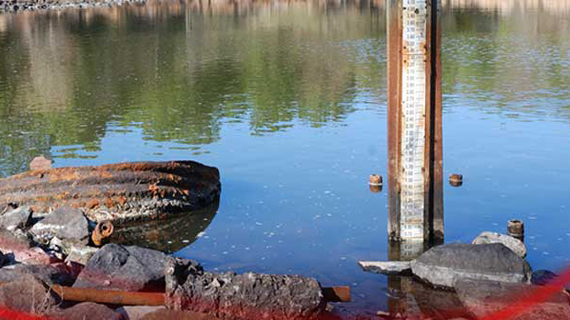
BULAWAYO City Council does not have adequate machinery to measure water levels at Magwegwe reservoir and staff is using estimates to determine volumes, resulting in more water being pumped and frequent pipe bursts in the area.
By Nqobile Bhebhe
Engineer Services director Simela Dube said the excess water being pumped into the reservoir added more pressure on the pipes leading to bursts.
“We do not have instruments,” he told a city council water crisis committee meeting on Wednesday.
“Whoever would be on duty just peeps through into the dark to do an estimate and sends rough volumes to water works to pump water. The end result is excess water and the pressure will continue to cause pipes to burst.”
Dube said the ideal situation would be to use telemeters, but the local authority did not have money, which was often channelled to what were considered as being priority areas. The engineer said council also did not have money to repair cracks at the reservoir and this saw a lot of water going to waste at a time the city was desperate to conserve the resource.
“Cracks at the reservoirs are causing massive leakages,” he said. “We need to work on it, but again lack of resources is hindering that.”
At the meeting, town clerk Middleton Nyoni said he once saw a river of burst water in Magwegwe. Area councillor Phenias Ndlovu said a lot of water is wasted through leakages.
- Chamisa under fire over US$120K donation
- Mavhunga puts DeMbare into Chibuku quarterfinals
- Pension funds bet on Cabora Bassa oilfields
- Councils defy govt fire tender directive
Keep Reading
“What is being presented here is not what is happening on the ground,” he said. “There are so many leaks in Magwegwe and we are telling people that we have water shortages.”
Ndlovu pointed out that some of the pipe bursts were not attended to in time due to a number of factors, ranging from lack of resources to late reportage and this saw a lot of treated water going to waste.
He said there were several pools of water that had become a source of trouble to residents, as they were breeding areas for mosquitoes and other waterborne diseases like bilharzia.










